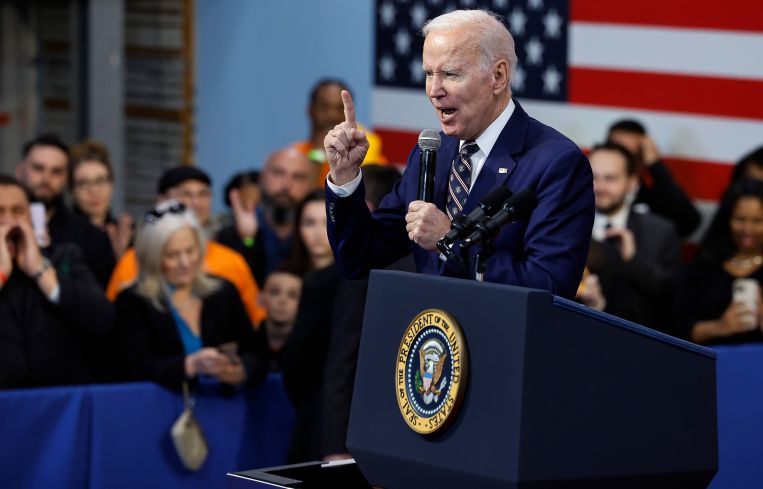Biden Looks to End ‘Sweetheart’ Deals for Real Estate and Billionaires
By Mark Hallum March 9, 2023 5:54 pm
reprints
Real estate may not be America’s — or the federal government’s — sweetheart for long.
President Joseph Biden released a proposed 2024 budget on Thursday in which he pitched eliminating tax breaks for real estate and private equity firms as part of his efforts to cut the country’s budget deficits by nearly $3 trillion over the next decade.
The White House is aiming to recover about $19 billion by closing the loophole known as the “like-kind exchange,” or 1031 exchange. The loophole lets real estate firms put off paying capital gains taxes from income earned on property sales as long as they make an investment in a similar property elsewhere.
The Biden administration said the real estate industry was the only one getting a “sweetheart deal” from the federal government and equated the tax break to an interest-free loan.
Other items in the budget, such as a 25 percent minimum income tax on the top 0.01 percent of earners, also known as a billionaire’s tax, would also have implications for top real estate executives. Biden also called on Congress to raise the income tax rate from 37 percent to 39.6 percent for people making more than $400,000 and couples pulling in more than $450,000 per year.
Corporations in general could also have an income tax rate of 28 percent, an increase from the 21 percent they currently pay, but still a big reduction from the 35 percent that was expected from corporations before 2017.
“We found that in 2020 when I took office, that 55 major corporations, Fortune 500 companies, paid zero in federal income tax on $40 billion in profit,” Biden said during remarks Thursday. “When I got elected, there were roughly 650 billionaires in America. Now there’s over 1,000. You know how much tax they pay? Three percent. … No billionaire should be paying less than a schoolteacher or a firefighter.”
Biden’s budget instead prioritizes making housing more affordable through programs such as the Neighborhood Homes Tax Credit, which his administration wants to fund with $16 billion over 10 years, and expanding the Low-Income Housing Tax Credit with a $28 billion infusion of funds.
The budget proposal also would set aside $10 billion for planning and housing capital grants for state and local governments to make reforms and streamline building new affordable housing projects on their own.
Overall, the budget puts $175 billion toward programs that could facilitate the development and rehabilitation of affordable housing.
Transit in the tri-state region is also a big investment in Biden’s budget.
Biden promised about $700 million for construction of the Hudson Tunnel Project — which could stabilize service in the long term on the Northeast Corridor — and $496 million for phase two of the Second Avenue Subway, an opportunity for transit-oriented development.
Mark Hallum can be reached at mhallum@commercialobserver.com.



